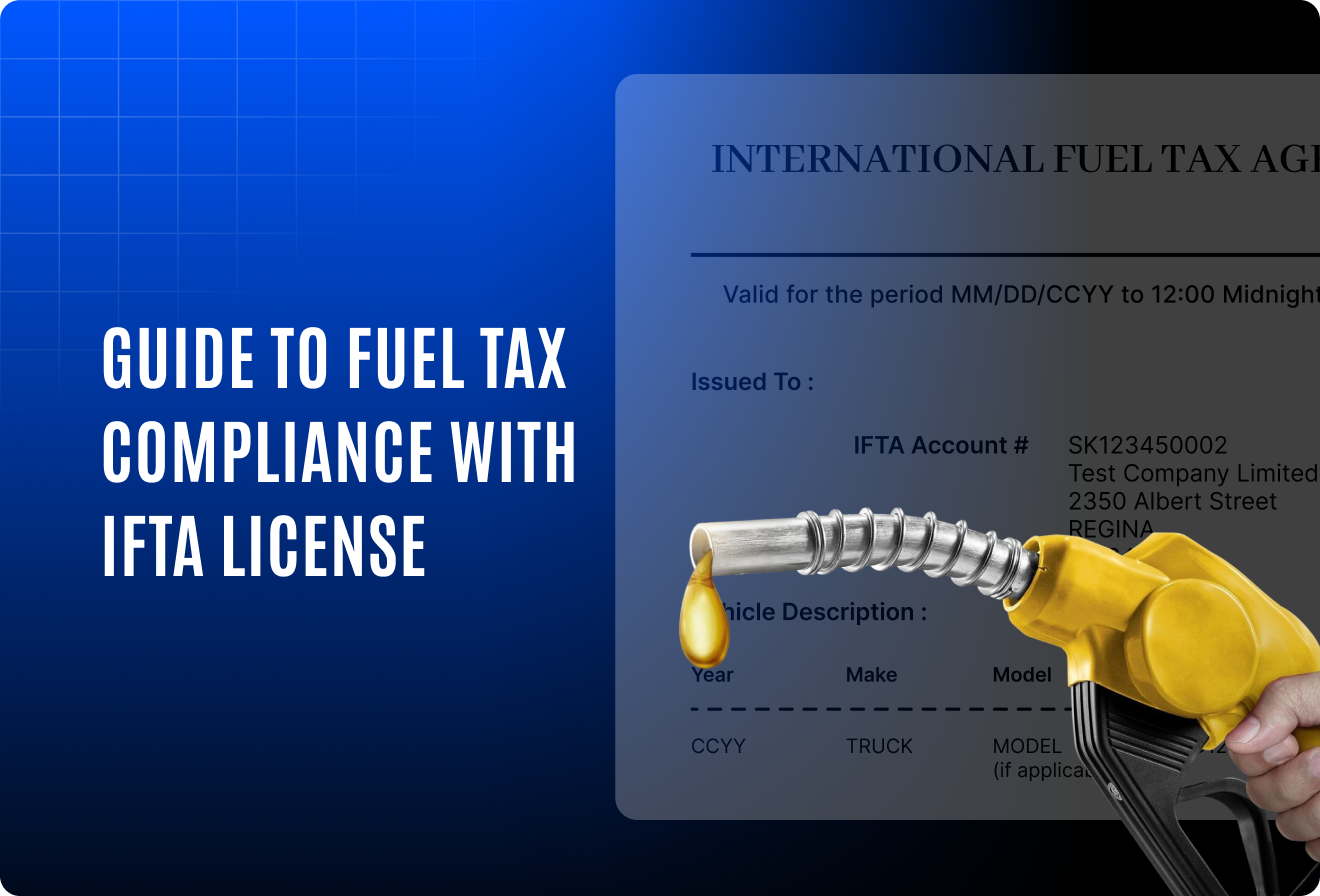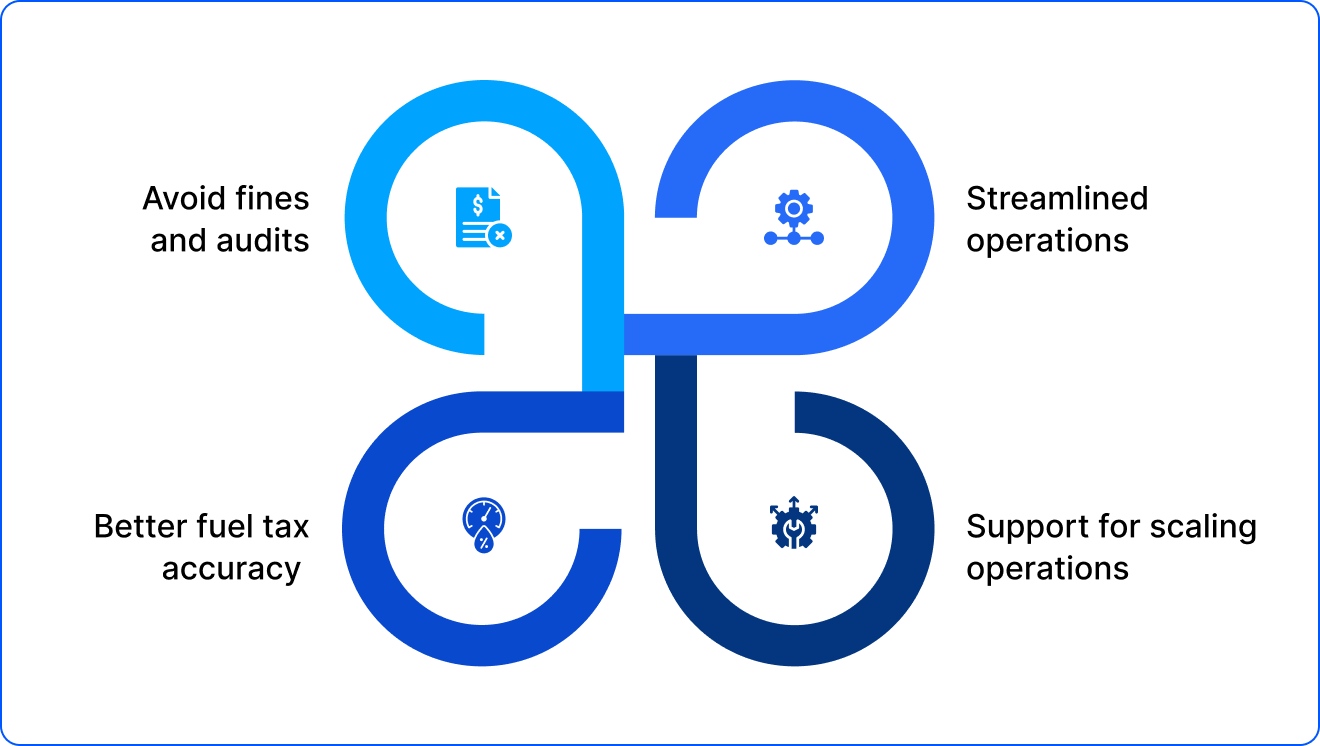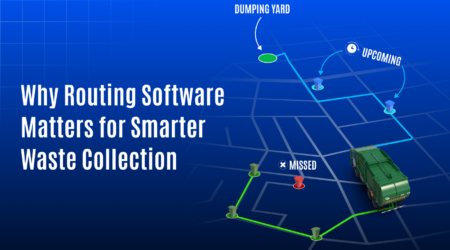IFTA license: A guide to fuel tax reporting compliance

Fuel tax reporting gets tricky when fleets move across borders. Each state or province follows different tax rules. For transport operators, tracking all this data manually is time-consuming. It also increases the chances of errors.
That’s where the IFTA license comes in.
The International Fuel Tax Agreement simplifies tax reporting for commercial fleets. With a valid IFTA license, operators can file one consolidated fuel tax report through their base jurisdiction. This covers travel and fuel use across all member regions.
Still, many businesses face delays. Manual record-keeping or outdated tools make IFTA reporting harder than it needs to be. In this blog, we’ll explain how IFTA works and how GPS tracking software can simplify compliance.
What is IFTA, and who needs it?
The International Fuel Tax Agreement (IFTA) is a cooperative agreement among the 48 U.S. states and 10 Canadian provinces. It helps simplify fuel use reporting for motor carriers operating across jurisdictions.
Fleet owners no longer need to apply separately in every state they travel through. Instead, they can file one consolidated fuel tax report with their base jurisdiction.
But not all vehicles need an IFTA license.
It’s required only for qualified motor vehicles. These are typically:
- Vehicles with two axles and a gross weight over 26,000 pounds
- Vehicles with three or more axles, regardless of weight
- Vehicles used in combination, where the total weight exceeds 26,000 pounds
If a fleet meets any of these criteria and travels in more than one IFTA member jurisdiction, it must get an IFTA license.
This ensures the proper distribution of fuel taxes based on where the fuel is actually used.
How does IFTA fuel tax reporting work?
Every motor carrier that holds an IFTA License is required to:
- Maintain accurate records of Fuel Purchases
- Track Miles driven in each IFTA Member Jurisdiction
- File Quarterly Fuel Tax Reports with their Base State or Province
These reports calculate how much Tax is owed to each State or Province based on:
- The Total distance traveled in each region
- The amount of fuel purchased
- The applicable tax rates in those regions
The Base Jurisdiction handles the redistribution of Taxes to other Member Jurisdictions. This makes compliance easier for Fleets and ensures proper Tax distribution.
Why is IFTA License compliance important?
Here’s why it matters:
- Avoid fines and audits
Non-compliance with IFTA rules can lead to heavy penalties, interest charges, and even revocation of operating licenses. - Streamlined operations
A single license and quarterly filing simplify administrative tasks and reduce paperwork across jurisdictions. - Better fuel tax accuracy
Accurate tracking helps carriers pay the right amount of tax—no overpayment, no underpayment. - Support for scaling operations
As fleets expand into new states or provinces, having an IFTA license removes the need for multiple individual fuel permits.
How to obtain an IFTA license
Getting an IFTA license involves a few formal steps, handled through the fleet’s home jurisdiction (known as the base jurisdiction).
Here’s how motor carriers can apply:
- Register with the base jurisdiction
The carrier must first be registered for operating authority in their home state or province. - Submit an IFTA license application
The form usually includes company details, vehicle information, and fleet size. - Pay the application fee
A small fee is typically required. Some states may also charge for IFTA labels or decals that must be placed on each qualified vehicle. - Receive the IFTA license and stickers
Once approved, the fleet will receive an IFTA license and two labels for each vehicle—one for each side of the cab.
After registering, carriers must begin maintaining detailed trip and fuel records for quarterly reporting.
What are IFTA quarterly reporting requirements
Once a carrier receives an IFTA license, regular reporting becomes essential.
Every quarter, carriers must:
- File a fuel tax return
This report includes total miles driven in each jurisdiction and the amount of fuel purchased. - Report miles and fuel use accurately
Fleet operators must log odometer readings and fuel receipts to calculate how much fuel was used in each region. - Pay or claim tax amounts
Based on fuel use, carriers either pay taxes owed or receive a credit if they overpaid.
Missing deadlines or inaccurate reporting can lead to penalties, interest charges, or even suspension of the IFTA license.
That’s why most carriers now rely on GPS-based fleet management software. It helps automate mileage tracking and simplifies data collection for these reports.
Final thoughts
Staying compliant with IFTA regulations is crucial for interstate fleet operations. By maintaining accurate fuel and distance records, renewing licenses on time, and using digital tools for reporting, fleet owners can simplify tax filings and avoid penalties. A well-managed IFTA process ensures smoother audits and supports transparent cross-border operations.




